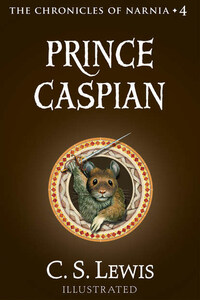The PROBLEM OF PAIN
C. S. Lewis
William Collins
An imprint of HarperCollinsPublishers
1 London Bridge Street
London SE1 9GF
www.WilliamCollinsBooks.com
First published in Great Britain by Geoffrey Bles 1940
Copyright © C. S. Lewis Pte Ltd 1940
Cover design and illustration by Kimberly Glyder
The right of C. S. Lewis to be identified as the author of this work has been asserted by him in accordance with the Copyright, Designs and Patents Act 1988
A catalogue copy of this book is available from the British Library.
All rights reserved under International and Pan-American Copyright Conventions. By payment of the required fees, you have been granted the non-exclusive, non-transferable right to access and read the text of this e-book on screen. No part of this text may be reproduced, transmitted, down-loaded, decompiled, reverse engineered, or stored in or introduced into any information storage and retrieval system, in any form or by any means, whether electronic or mechanical, now known or hereinafter invented, without the express written permission of HarperCollins.
Source ISBN: 9780007461264
Ebook Edition © 2009 ISBN: 9780007332267
Version: 2015-11-20
The Son of God suffered unto the death,
not that men might not suffer, but that their sufferings might be like His.
GEORGE MACDONALD,
Unspoken Sermons, First Series
When Mr Ashley Sampson suggested to me the writing of this book, I asked leave to be allowed to write it anonymously, since, if I were to say what I really thought about pain, I should be forced to make statements of such apparent fortitude that they would become ridiculous if anyone knew who made them. Anonymity was rejected as inconsistent with the series; but Mr Sampson pointed out that I could write a preface explaining that I did not live up to my own principles! This exhilarating programme I am now carrying out. Let me confess at once, in the words of good Walter Hilton, that throughout this book ‘I feel myself so far from true feeling of that I speak, that I can naught else but cry mercy and desire after it as I may’.>fn1 Yet for that very reason there is one criticism which cannot be brought against me. No one can say ‘He jests at scars who never felt a wound’, for I have never for one moment been in a state of mind to which even the imagination of serious pain was less than intolerable. If any man is safe from the danger of underestimating this adversary, I am that man. I must add, too, that the only purpose of the book is to solve the intellectual problem raised by suffering; for the far higher task of teaching fortitude and patience I was never fool enough to suppose myself qualified, nor have I anything to offer my readers except my conviction that when pain is to be borne, a little courage helps more than much knowledge, a little human sympathy more than much courage, and the least tincture of the love of God more than all.
If any real theologian reads these pages he will very easily see that they are the work of a layman and an amateur. Except in the last two chapters, parts of which are admittedly speculative, I have believed myself to be restating ancient and orthodox doctrines. If any parts of the book are ‘original’, in the sense of being novel or unorthodox, they are so against my will and as a result of my ignorance. I write, of course, as a layman of the Church of England: but I have tried to assume nothing that is not professed by all baptised and communicating Christians.
As this is not a work of erudition I have taken little pains to trace ideas or quotations to their sources when they were not easily recoverable. Any theologian will see easily enough what, and how little, I have read.
C. S. LEWIS
Magdalen College, Oxford, 1940
I wonder at the hardihood with which such persons undertake to talk about God. In a treatise addressed to infidels they begin with a chapter proving the existence of God from the works of Nature…this only gives their readers grounds for thinking that the proofs of our religion are very weak…. It is a remarkable fact that no canonical writer has ever used Nature to prove God.
PASCAL, Pensées, IV, 242, 243
Not many years ago when I was an atheist, if anyone had asked me, ‘Why do you not believe in God?’ my reply would have run something like this: ‘Look at the universe we live in. By far the greatest part of it consists of empty space, completely dark and unimaginably cold. The bodies which move in this space are so few and so small in comparison with the space itself that even if every one of them were known to be crowded as full as it could hold with perfectly happy creatures, it would still be difficult to believe that life and happiness were more than a byproduct to the power that made the universe. As it is, however, the scientists think it likely that very few of the suns of space—perhaps none of them except our own—have any planets; and in our own system it is improbable that any planet except the Earth sustains life. And Earth herself existed without life for millions of years and may exist for millions more when life has left her. And what is it like while it lasts? It is so arranged that all the forms of it can live only by preying upon one another. In the lower forms this process entails only death, but in the higher there appears a new quality called consciousness which enables it to be attended with pain. The creatures cause pain by being born, and live by inflicting pain, and in pain they mostly die. In the most complex of all the creatures, Man, yet another quality appears, which we call reason, whereby he is enabled to foresee his own pain which henceforth is preceded with acute mental suffering, and to foresee his own death while keenly desiring permanence. It also enables men by a hundred ingenious contrivances to inflict a great deal more pain than they otherwise could have done on one another and on the irrational creatures. This power they have exploited to the full. Their history is largely a record of crime, war, disease, and terror, with just sufficient happiness interposed to give them, while it lasts, an agonised apprehension of losing it, and, when it is lost, the poignant misery of remembering. Every now and then they improve their condition a little and what we call a civilisation appears. But all civilisations pass away and, even while they remain, inflict peculiar sufferings of their own probably sufficient to outweigh what alleviations they may have brought to the normal pains of man. That our own civilisation has done so, no one will dispute; that it will pass away like all its predecessors is surely probable. Even if it should not, what then? The race is doomed. Every race that comes into being in any part of the universe is doomed; for the universe, they tell us, is running down, and will sometime be a uniform infinity of homogeneous matter at a low temperature. All stories will come to nothing: all life will turn out in the end to have been a transitory and senseless contortion upon the idiotic face of infinite matter. If you ask me to believe that this is the work of a benevolent and omnipotent spirit, I reply that all the evidence points in the opposite direction. Either there is no spirit behind the universe, or else a spirit indifferent to good and evil, or else an evil spirit.’














